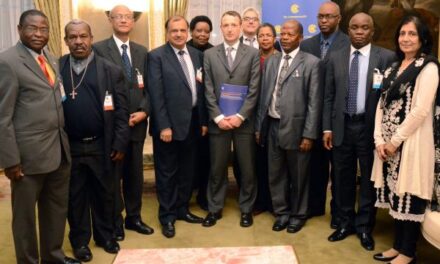Among the international institutions that have embraced education as one of its focal areas, the Commonwealth stands out through its self-designated role as Advocate, Broker and Catalyst for the many constituents which it serves. On of these constituents which in fact accounts for almost half of its membership is the community of small states. The leading role which the Commonwealth has taken over the past decades in advocating for the development of education in the small states of the world, particularly in the Caribbean and the South Pacific, has seen them emerge as significant contributors to the international discourse on educational issues and practices. To build on the gains so far achieved, to enable them to respond creatively and innovatively to today’s highly volatile global environment and so negotiate their way forward, small states need assistance in developing sub-regional, regional and international partnerships and collaboration. For while it may be argued that this new environment does create opportunities, it can also limit horizons and deepen pre-existing inequalities for the marginalized.
It is this type of support and brokerage that the Commonwealth, through its Secretariat, can provide for its small member states. The type of support which we have derived from successful initiatives like the Commonwealth of Learning (COL); the Virtual University for Small States of the Commonwealth (VUSSC); the pan-commonwealth conferences, workshops and seminars on Post-Secondary Education in small states; the support for publications of educational manuals and best practices in small states. In this regard, there is significant scope for its role as a catalyst facilitating and spearheading further collaboration and linkages in education, both among small states and between small states and the wider international community.
A particular priority of small states is the strengthening of its tertiary and higher education sector, and the building of capacity in regional education systems. Given the common linguistic heritage of all Commonwealth small states, the Secretariat, through its Education Desk, is in a favoured position to take on the role of Facilitator-in-Chief for this significant percentage of its membership. The increasing role being accorded to tertiary and higher education to national economic growth makes the continuing support of the Commonwealth an urgent development imperative.




